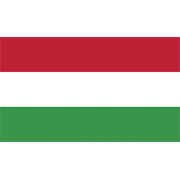Fiscal subject related
The regulation targets traders involved in the grocery sector under the Standard Industrial Classification of Activities: 4711: Mixed retail trade in grocery stores, whose annual net turnover exceeds HUF 1 billion. This includes various types of establishments, from hypermarkets to smaller stores. The regulation applies to the display and sale of prepackaged products such as food items, detergents, and fabric.
Thus, the scope of the government decree covers prepacked products, including, for example, boxed biscuits, chocolate bars, ice cream, detergents, fabric softeners, etc. Therefore, the regulations to be presented cover not only prepacked foods but also other prepacked products.
The core requirement under this legislation is the mandate for traders to provide clear information to consumers regarding any changes in product packaging, specifically if new smaller pack sizes are introduced in the market. The requirement details that such changes must be communicated visibly in the store where the products are sold. For larger stores (e.g., hypermarkets), this information must be displayed at every entrance, whereas smaller stores should have it at a conspicuous spot near the entrance. Additionally, information should be displayed next to the product itself in a prominent manner.
Based on the mentioned act itself, traders who fall under its scope in Hungary are required to:
- Display information for two months starting from the introduction of changed packaging sizes,
- Use specific sizes and formats for information sheets as detailed in the regulation (e.g., A3 size at store entrances, smaller tags next to the product itself),
- continue displaying information if they keep selling products introduced between July 2023 and February 2024 that had size changes.
This regulation aims to enhance transparency and maintain the consumer's ability to make informed decisions amidst rising concerns about inflation and product value reduction.
Other news from Hungary
New event was created: Join our free webinar: Approaching Hungary’s New E-Cash Register Era
 Hungary
Author: Tara Nedeljković and Ištvan Božoki
Hungary
Author: Tara Nedeljković and Ištvan Božoki
Step into this in-depth webinar designed for businesses and retailers operating in, or planning to enter the Hungarian market. You’ll discover what the new generation of e-Cash registers is expected to introduce, along with the practical implications these changes may have on daily operations, technology planning, and customer interaction as well. 📅 18 December ⏰ 3 PM (CET) What we&rsquo... Read more



Choosing the Right Printer for the NAV e-Cash Register App in Hungary
 Hungary
Author: Tara Nedeljković
Hungary
Author: Tara Nedeljković
The NAV e-Cash Register app in Hungary supports a wide range of portable printers, but users should choose a device that meets the system’s technical expectations for clean and reliable receipt printing. Read more
Subscribe to get access to the latest news, documents, webinars and educations.
Already subscriber? Login


NAV Issues Detailed Guidance on Licensing Procedures for E-Cash Registers and Customer Apps
 Hungary
Author: Tara Nedeljković
Hungary
Author: Tara Nedeljković
NAV has published a detailed Notice explaining how distributors must apply for and obtain permits to market e-cash registers and customer applications under Decree 8/2025. Let’s explore this further. Read more
Subscribe to get access to the latest news, documents, webinars and educations.
Already subscriber? Login


Hungarian HAV Published E-Cash Register Testing Details
 Hungary
Author: Tara Nedeljković
Hungary
Author: Tara Nedeljković
Hungary’s new e-cash register framework, based on the 8/2025 (III.31.) Ministry of Finance Regulation, introduces strict technical certification rules and NAV-supervised type testing to ensure secure digital receipt issuance and data transmission. Read more
Subscribe to get access to the latest news, documents, webinars and educations.
Already subscriber? Login


New Requirements for Publishing Visual and Audio Signals of E-Cash Registers in Hungary
 Hungary
Author: Tara Nedeljković
Hungary
Author: Tara Nedeljković
The National Tax and Customs Administration mandates specific visual (.gif) and audio (.wav) signals for e-cash registers for consistent customer feedback. Read more
Subscribe to get access to the latest news, documents, webinars and educations.
Already subscriber? Login


How VAT Rules Impact Free Product Campaigns in Hungary
 Hungary
Author: Tara Nedeljković
Hungary
Author: Tara Nedeljković
In Hungary, free product transfers can create significant VAT implications for retailers. While small-value gifts under HUF 5,000 allow VAT deductions, strict record-keeping is essential. Read more
Subscribe to get access to the latest news, documents, webinars and educations.
Already subscriber? Login


E-Receipts, Receipt Store, and Customer App in Hungary’s New E-Cash Register System
 Hungary
Author: Tara Nedeljković
Hungary
Author: Tara Nedeljković
Hungary's new e-cash register system introduces the e-receipt, an electronic receipt solely issued by e-cash registers, contrasting with the broader term electronic receipt. Read more
Subscribe to get access to the latest news, documents, webinars and educations.
Already subscriber? Login

